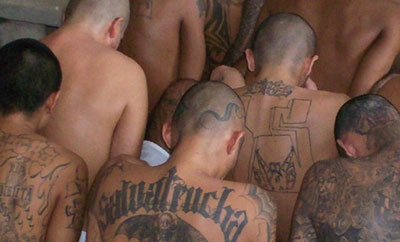Harsh and repressive actions taken against gangs by Central American governments have served to worsen violence, according to the independent research project Small Arms Survey, highlighting the need for policy alternatives.
The Small Arms Survey’s research director, Anna Alvazzi del Frate, told EFE that attacking gangs and eliminating leaders ends up causing more violence, and that these kinds of “mano dura” — or “iron fist” — policies have failed throughout the region. According to the director, this is in part because a gang without a leader causes insecurity and an internal struggle for control.
The group’s “Small Arms Survey 2013” used the case of two gangs in Managua, Nicaragua to examine how particular circumstances inform gang dynamics, including the importance of individual leaders to a gang’s use of arms and violence. The study concluded that effective policy interventions “must be informed by close qualitative understandings of specific gang dynamics.”
According to Alvazzi del Frate, a gang truce is one alternative model that notably reduces violence. She also said that governments should focus on reducing drug consumption through generating employment opportunities, as the drug trade “determines” levels of violence.
InSight Crime Analysis
El Salvador offers one example to support the findings of Small Arms Survey. Although the US called Plan Mano Dura, implemented in El Salvador in 2003, a successful anti-gang policy, the homicide rate nearly doubled from the point of its implementation until 2012. Meanwhile, following the secret brokering of a gang truce by the government and Catholic Church between the Mara Salvatrucha (MS-13) and Barrio 18 street gangs in March 2012, the country saw a 40 percent drop in homicides.
[See InSight Crime’s four part special on the El Salvador gang truce]
“Iron fist” policies were also implemented in El Salvador’s Northern Triangle neighbors Guatemala and Honduras. In all three countries, the rounding up of suspected gang members as part of these policies has led to severe overcrowding in jails, facilitating the use of prisons as administrative centers for gangs, allowing them to regroup and widen their range of criminal activity.
However, the report comes as El Salvador struggles to keep its gang truce afloat even as Honduras attempts to replicate it. Despite the initial sharp drop in the homicide rate, the Salvadoran truce has encountered a number of problems, including reports of rising extortion and disappearances, and most recently a renewed spike in the homicide rate.

